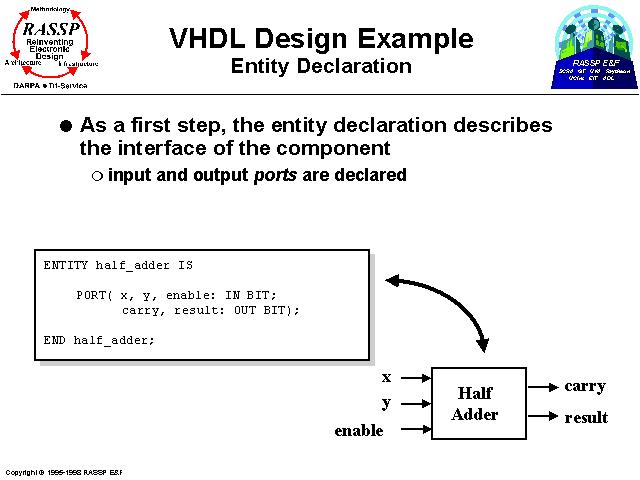Slide 21 of 93
Notes:
In this slide the term entity refers to the VHDL construct in which a component's interface (which is visible to other components) is described. The first line in an entity declaration provides the name of the entity.
Next, the PORT statement indicates the actual interface of the entity. The port statement lists the signals in the component's interface, the direction of data flow for each signal listed, and type of each signal. In the above example, signals x, y, and enable are of direction IN (i.e. inputs to this component) and type bit, and carry and result are outputs also of type bit. Notice that if signals are of the same mode and type, they may be listed on the same line.
Particular attention should be paid to the syntax in that no semicolon is required before the closing parenthesis in the PORT declaration (or GENERIC declaration, for that matter, which is not shown here). The entity declaration statement is closed with the END keyword, and the name of the entity is optionally repeated.

















